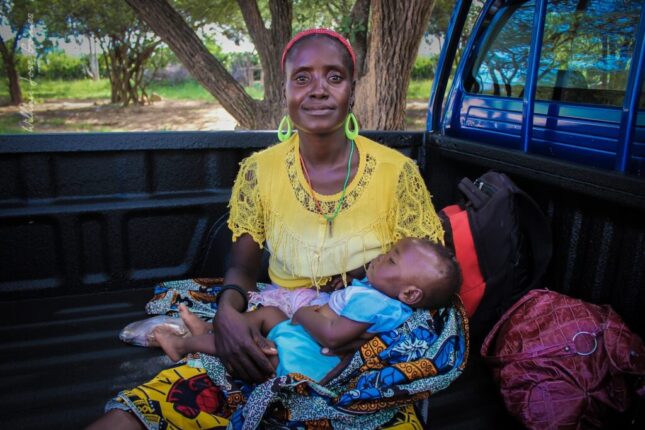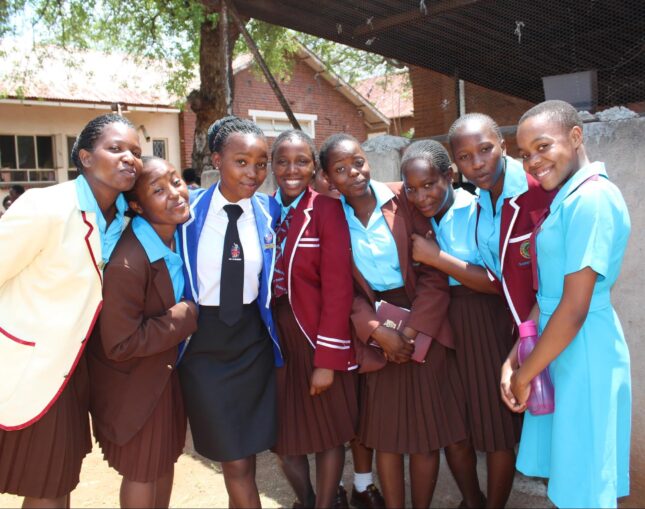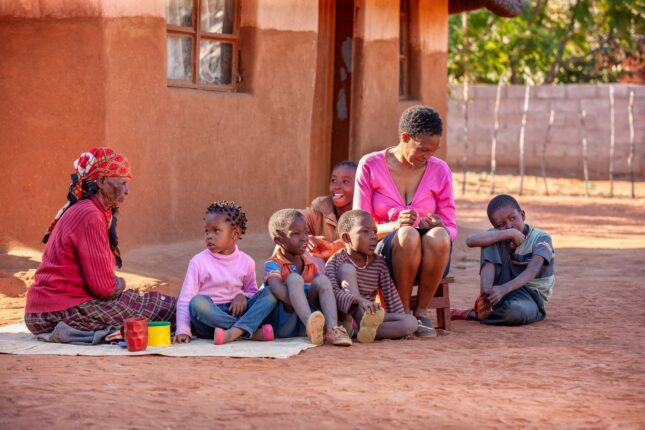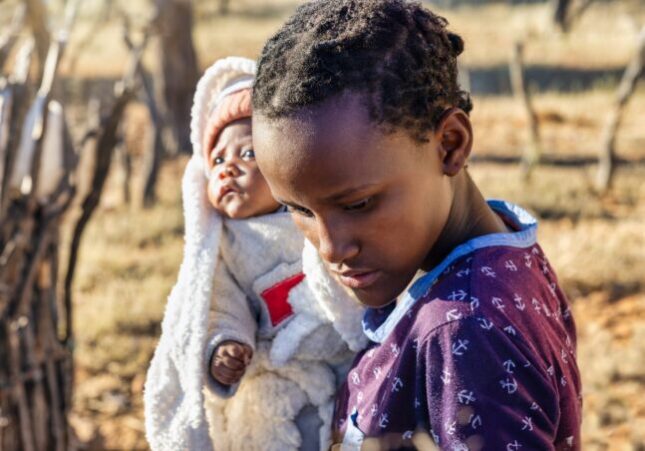-
Conflict in Sudan: Widespread Sexual Violence
›
This article originally appeared on Enheduanna, a blog of the Wilson Center’s Middle East Women’s Initiative.
Only a few years ago, the world celebrated the women-led revolution in Sudan that ousted the former dictator Omer El-Basher after 30 years in power. Women were fed up with his government. Those who used to live in the urban areas experienced the humiliating public order laws: they were arrested and flogged for wearing trousers or walking around with no headscarves.
-
Rethinking Peacebuilding in Northeastern Nigeria
›
In October 2024, women from countries across the globe converged on New York for the United Nations Security Council’s annual open debate on Women, Peace and Security (WPS).
In Nigeria, however, thousands of women and girls were sighing in despair. Many of them were thinking about where they might find their next meal. A humanitarian crisis in Nigeria’s northeast region remains critical, and people living there are in dire need of food, clothing and shelter.
-
Swachh Bharat Mission: Intended and Unintended Consequences
› Open defecation (OD) has been demonstrated to be a major contributing factor to poor health, resulting in adverse social and economic impacts due to work and educational disruptions. Despite various policy-driven efforts since 1954 to eradicate OD, it remains highly prevalent in India—especially in rural areas where there is a lack of toilets. A survey conducted in 2012 revealed that 60% of rural households (and 9% of urban households) had no toilet access. India’s open defecation rate of 40% was one of the highest in the world—more than three times the global average of 12%.
Open defecation (OD) has been demonstrated to be a major contributing factor to poor health, resulting in adverse social and economic impacts due to work and educational disruptions. Despite various policy-driven efforts since 1954 to eradicate OD, it remains highly prevalent in India—especially in rural areas where there is a lack of toilets. A survey conducted in 2012 revealed that 60% of rural households (and 9% of urban households) had no toilet access. India’s open defecation rate of 40% was one of the highest in the world—more than three times the global average of 12%.
-
Obstetric Violence in Sub-Saharan Africa: The Struggle for Dignified Maternal Care
›
In August 2013, Josephine Majani, a mother of three from Bungoma County in Kenya, endured a harrowing birth experience. Despite her repeated pleas for help during labor, the nurses in the hospital ignored her. She struggled to walk to the labor ward while in intense pain, but all of its beds were occupied. Majani was forced to give birth on the cold concrete floor. Subsequently, nurses there subjected her to verbal and physical abuse—even making her carry her placenta back to the labor ward.
-
World AIDS Day: Center Women and Girls to Eradicate AIDS
›
Over the last four decades, contracting HIV has been transformed from a fatal diagnosis to a manageable chronic illness. Political will and financial commitments have reduced new HIV infections worldwide by 39 percent since 2010. However, much work still is needed to meet global targets of preventing new cases of HIV and reducing AIDS-related deaths. Marginalized communities, including women and girls, face countless barriers which hinder progress towards comprehensive HIV prevention across the planet.
-
Confronting Pronatalism is Essential for Reproductive Justice and Ecological Sustainability
›
Pronatalism, the push for women to have more children, has elbowed its way into prominence in public discourse. In the United States, cultural and institutional pressures on women to bear children are articulated in various ways, from negative portrayals of women who don’t consider having a child a viable choice for themselves, to a burgeoning Silicon Valley subculture that advocates having “tons of kids” to save the world, to policy proposals that would further restrict reproductive choice or limit the voting power of the childless. The stigmatization of people without children and the recent rise in contemporary pronatalism is a global phenomenon.
-
Essential and Overdue: Quality Care for Adolescent Mothers and First-Time Parents
›
Maternal health among adolescents in low- and middle-income countries (LMICs) remains a largely unexplored and frequently neglected area within the public health field. Adolescent birth rates remain disproportionately high in LMICs, accounting for approximately 97% of all adolescent births globally. The prevalence of child marriage, poverty, gender-based violence, and limited access to and utilization of contraceptive methods all contribute to this startling statistic.
-
“Too Many” to “Too Few”: South Korea’s Declining Fertility Rates
›
In South Korea, pet strollers have become more popular than baby strollers. Sales reports from an e-commerce firm in that country noted that sales of infant strollers fell by 43% in 2023, while the sales of pet strollers rose by 57%—and consumer demand for pet products continued to grow into the first months of 2024. There has also been an uptick in the opening of veterinary hospitals that is outpacing the establishment of pediatric clinics in many neighborhoods.
Showing posts from category gender.


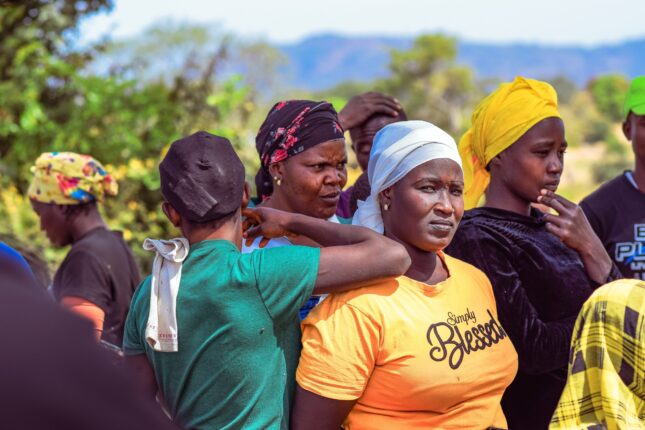
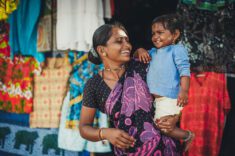 Open defecation (OD) has been demonstrated to be a major contributing factor to poor health, resulting in adverse social and economic impacts due to work and educational disruptions. Despite various policy-driven efforts since 1954 to eradicate OD, it remains highly prevalent in India—especially in rural areas where there is a lack of toilets. A survey conducted in 2012 revealed that 60% of rural households (and 9% of urban households) had no toilet access. India’s open defecation rate of 40% was one of the highest in the world—more than three times the global average of 12%.
Open defecation (OD) has been demonstrated to be a major contributing factor to poor health, resulting in adverse social and economic impacts due to work and educational disruptions. Despite various policy-driven efforts since 1954 to eradicate OD, it remains highly prevalent in India—especially in rural areas where there is a lack of toilets. A survey conducted in 2012 revealed that 60% of rural households (and 9% of urban households) had no toilet access. India’s open defecation rate of 40% was one of the highest in the world—more than three times the global average of 12%.
